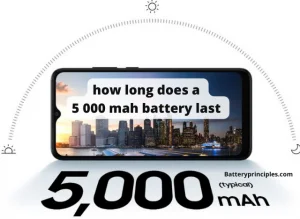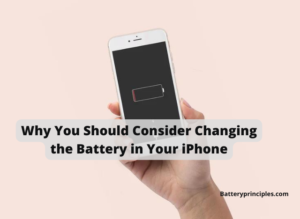A few days before, I bought a Tesla Model S car, and I was wondering: if the mass is energy and vice versa, is there a difference in mass between a charged battery and a discharged one? Are there any effects on the car’s speed? let’s find out.
To understand the science behind batteries, we need to look at the basic principles of battery, like chemical reactions that take place and the forces that come into play when charging a battery. By exploring the underlying science behind batteries, we can find does a charged battery weighs more.
Fundamentals of Batteries
Battery operation is based on a chemical process that generates a flow of electrons from a substance that transfers them to one that receives them. Its flow moves inside a third substance called an electrolyte, which can be liquid but, ultimately, solid.
An orderly and layered structure inside the battery allows this flow of electrons to be intercepted and directed in a precise direction starting from the anode (or negative pole), where the substance that releases electrons is located, to the cathode. ( or positive pole, where is the substance that receives electrons )
In the battery, the number of atoms (and electrons!) remains constant, only their configuration changes. The difference in energy between a charged and discharged battery is equal to the difference in the electrostatic potential of the electrons. When a battery discharges, the electrons move to positions of lower potential energy (from the substance that gives way to the one that receives).
When batteries are in operation
When batteries are in operation, only one electrochemical reaction takes place, with electrons moving from one end of the battery to the other. But the mass (the number of atoms in the battery) remains the same. Therefore, the weight of the battery will not decrease.
However, anyone who studied physics in high school or college knows that energy and mass can convert into one another (ex: In the case of nuclear fission). Such a person might now ask:
Doesn’t a charged, high-energy battery weigh more than a low-energy discharge battery?
Yes, of course. According to Albert Einstein’s famous formula E=mc2, the mass corresponding to this energy difference can be calculated. It works with the formula m=E/c 2. Hard to understand? Let’s look at it in the following way.
Mass and energy equivalence (E=mc)
E = mc2
E= mc2 is the most famous equation found by the great scientist Albert Einstein.
E in the equation is the energy of a system at rest, and MC2 means, the Mass and the speed of light (constant). He says with the equation: The greater body mass, the greater its rest energy. It means that when a body (in this case, the battery) loses energy, releases it into the environment in electricity form, and the mass loses.
So, this difference in stored energy results in a mass difference between the charged and the discharged battery.
Example –
Tesla Model S battery
The difference in mass between a charged and discharged 100 kWh 407 V lithium-ion battery (like the Tesla Model S) is:
E = mc2
where E = 100 kWh = 3.6 x 10^8 J and c = 3 x 10^8 m/s
So the difference in the mass (between the uncharged and charged battery) is of the order of micrograms, so it is negligible compared to the car’s weight and has no effect on the car’s speed.
Should I wait for the 4680 battery?
battery principles
Are batteries heavier when charged?
According to Einstein’s theory of relativity, mass and energy are just different manifestations of the same phenomenon. A battery contains energy in the form of the mass of its atoms and the electrical energy stored in it.
So the charged battery is more heavy, which means it is heavier than an uncharged battery. However, the difference is tiny that a standard scale will always show the same weight whether the battery is charged or not. it is in the range of billionths of a percent by weight.
It is true for any form of energy (atomic, chemical, thermal, etc.). It can say that energy in any of its weighs forms. If we heat an iron bar, it will weigh slightly more than when it was cold (surprising, but true and experimentally proven).
Even if we throw a stone, the kinetic energy we give it makes it weigh more, but the difference is so small that it is hard to measure (impossible with the instruments we have at home). The increase in mass due to speed becomes more evident when the speed of the stone is very high (close to that of light), as it happens in particle accelerators, although not with stones.
So finally, Does a charged battery weigh more?
Yes, according to the theory of relativity, a used battery is a tiny fraction lighter, but you can’t do anything with it in everyday life. But, it does not help to distinguish between full and empty batteries by weighing them.
Does a dead battery weigh less?
Yes. The famous Einstein equation E=mc2 states that mass and energy are just two manifestations of the same phenomenon. That is, the energy of a battery is contained in the form of the mass of its atoms and the electrical energy stored in it. It increases in mass as it charges and decreases as it discharges. So, the mass of the dead battery is smaller than the mass of the charged battery. However, it is too small to be weighed on an ordinary scale.






